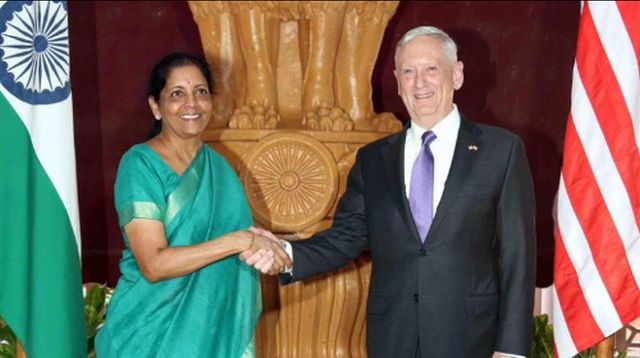
India all set to get waiver relief from US sanctions against Russia
 Washington : The US Senate has passed a bill that gives India a partial waiver relief from sanctions against Russian firms and oligarchs, allowing it to keep buying Russia-made weapons in a landmark decision that is seen as a big diplomatic win for New Delhi.
Washington : The US Senate has passed a bill that gives India a partial waiver relief from sanctions against Russian firms and oligarchs, allowing it to keep buying Russia-made weapons in a landmark decision that is seen as a big diplomatic win for New Delhi.
The defence spending bill, which now goes to President Donald Trump before it becomes a law, also seeks to “strengthen and enhance” defence partnership with India. It was passed by the House last week.
The National Defence Authorization Act was passed on Wednesday with overwhelmingly bipartisan support – a vote of 87-10 in the Senate and 359-54 in the House.
The bill authorizes a $717 billion US defence budget to rebuild its military and “strengthens our alliances and partnerships and reforms the way we do business”, Secretary of Defence James Mattis said in a statement.
He said the bill “provides waiver relief to key US partners and allies from certain Russian-related sanctions under the Countering America’s Adversaries through Sanctions Act” (CAATSA).
The CAATSA amendment allows countries like India to continue buying military equipment from Russia provided they fulfill certain conditions, like reducing defence purchases from Russia.
The law, which came into effect in 2018, sanctions some Russia firms, including state-run military hardware makers, and some businessmen, for alleged meddling in the 2016 US Presidential elections.
The act also forbade third-party countries from doing “significant transactions” with Russia in military and intelligence sectors through the threat of secondary sanctions.
Now the modified version of the act requires presidential certifications allowing key US allies to trade with Russia.
“I am grateful for the strong commitment of members on both sides of the aisle to pass this year’s NDAA in record time. Together, they have demonstrated the deep and abiding bipartisan support our military enjoys,” Mattis said.
“It is now our duty to implement these policies responsibly and ensure a culture of performance and accountability.”
Among the first in the line of fire of anti-Russia sanctions was India, which is all set to buy five Russian-made S-400 Triumf advanced air defence systems.
An agreement for the deal is expected to be signed when Prime Minister Narendra Modi visits Moscow later this year.
Significantly, the bill also proposes to “strengthen and enhance” America’s major defence partnership with India and “work toward mutual security objectives”.
It talks about the strategic Quadrilateral Dialogue between the US, India, Japan, and Australia for “expanding engagement in multilateral frameworks”.
Also known as the Quad, the grouping first established in 2007-08, was revived last year amid China’s assertive maritime strategy expansion, land reclamation and territorial claims in and around the South China Sea.
Concerns about Chinese increasing military activities and its Maritime Silk Road Initiative (MSRI) have triggered fears in India about encroachment of its strategic interest as well as encirclement of its maritime zone by Chinese projects in Pakistan and Sri Lanka.
The expansion of engagement in multilateral frameworks, the bill said, would be done to “promote regional security and defend shared values and common interests in the rules-based order”.
Besides, additional steps would be explored “to implement the ‘major defence partner’ designation to better facilitate military inter-operability, information sharing, and appropriate technology transfers” with India.
The bill also proposed to designate a “responsible individual within the Department of Defence to facilitate the major defence partnership with India” and pursue strategic initiatives to help develop India’s defence capabilities, including maritime security capabilities.
It also suggests conducting additional joint exercises between Indian and US militaries in the Persian Gulf, the Indian Ocean region, and the Western Pacific and furthering cooperative efforts to promote security and stability in Afghanistan.
—IANS
